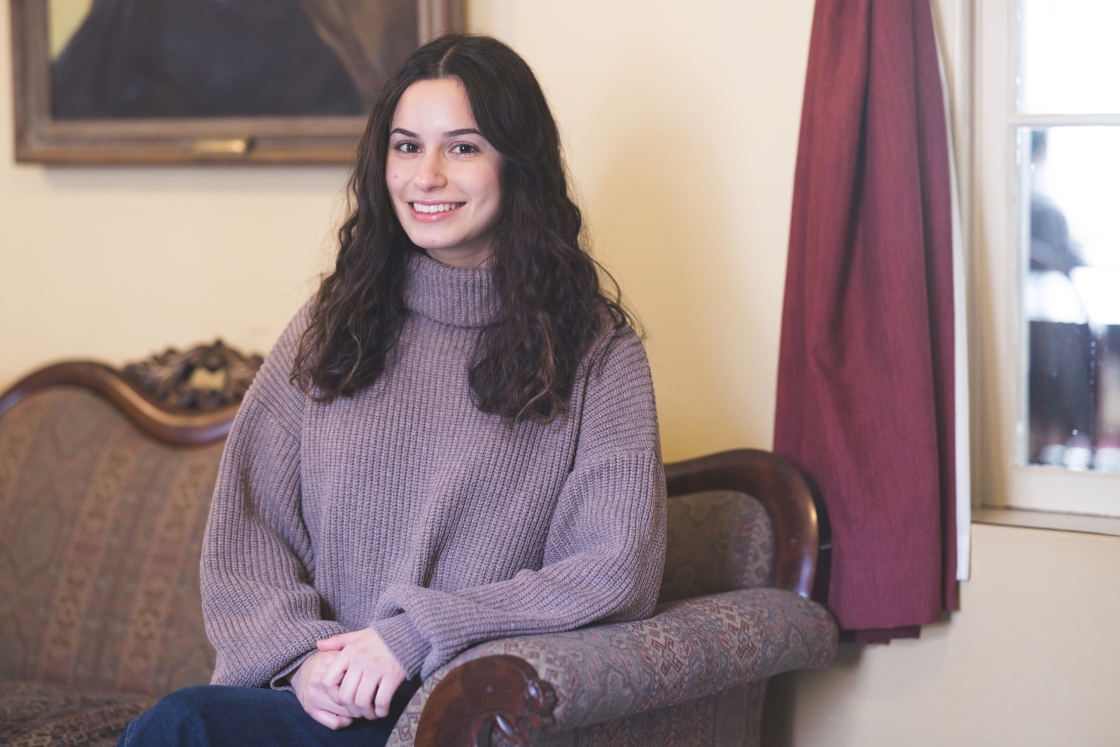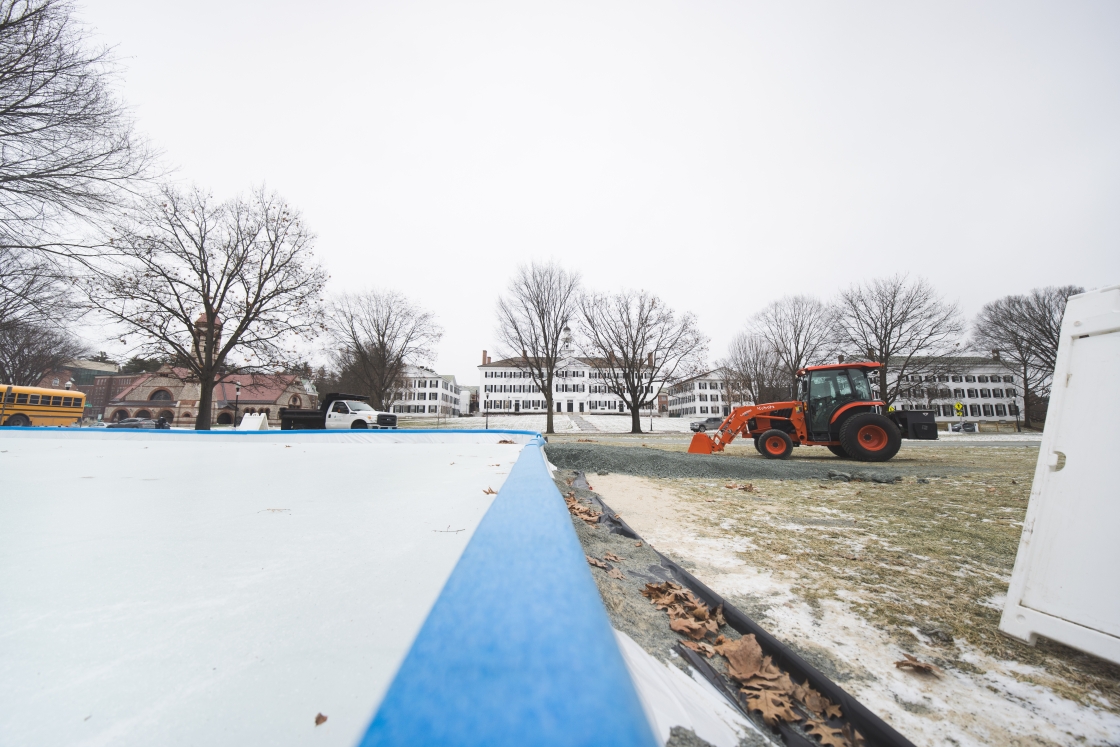In 2012, Dorothy and Robert King ’57 gave $14.7 million to Dartmouth to help address the problem of global poverty by establishing a scholarship program for exceptional students from developing countries.
“We’re not interested in naming buildings,” Robert King said at the time. “We’re interested in people who can make a difference.”

The scholarship program established by Robert King ’57 and Dorothy King brings young scholars from impoverished, rural nations in Africa, Latin America, and Southeast Asia to study at Dartmouth. (Photo courtesy of Robert and Dorothy King)
About the King Scholarship
By the fall of 2016, the King’s gift will be funding a total of 12 King Scholars annually, three from each class. The gift also establishes an admissions recruitment fund to identify and bring to Dartmouth eligible students from developing countries in Africa, Latin America, and Southeast Asia. An alumni network, facilitated by the College, will connect current and past King Scholars with each other to create a community of people who will learn from each other as they tackle the challenges of their home countries.
The King Scholars will receive pre-orientation support and mentoring services to help with the transition to college, as well as ongoing academic mentoring throughout their Dartmouth careers. During one summer term at Dartmouth, the King Scholars will return home to research and write about solving problems of extreme poverty in their communities, and be encouraged to continue this work post-graduation.
The results the Kings envision are enormously wide-reaching: The program will bring young scholars from impoverished, rural nations in Africa, Latin America, and Southeast Asia to study at Dartmouth, and they will be encouraged to return home after graduation and work toward alleviating poverty in their native countries.
“We’re very excited that the first three students will soon begin classes at Dartmouth. We look forward to meeting them,” say Bob and Dottie King. “It’s our hope that they are the first of many promising students who are able come to Dartmouth, and then use their education to make the world a better place.”
The inaugural Dorothy and Robert King ’57 Scholars are Eric Iradakunda ’17 of Rwanda; Marc Sepama ’17 of Burkina Faso; and Theo Wilson ’17 of Jamaica.
“Dartmouth is pleased to welcome the inaugural King Scholars, whose exceptional talent and global perspectives will enrich our campus community,” says Interim Provost Martin Wybourne. “We are deeply grateful to Dorothy and Robert King for making this program possible.”
Here’s a look at the first King Scholars:
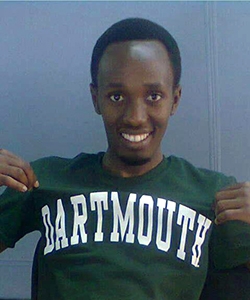
Eric Iradakunda ’17 of Rwanda. (Photo courtesy of Eric Iradakunda ’17)
Eric Iradakunda ’17
Eric Iradakunda was 5 when his father was killed in the Rwandan genocide. Raised by his mother in a small village in eastern Rwanda, Iradakunda had to grow up fast.
“I took a job at the age of 8, attending neighbors’ cows in order to get some milk for our family to survive,” he says. “I loved the experience because it felt good having responsibility at a young age.”
It was that sense of responsibility that made a King Scholarship appealing to him. Iradakunda hopes to return and help his fellow Rwandans.
“I am passionate about helping other people live a better life,” says Iradakunda, adding that he’s particularly interested in improving housing options.
While he hasn’t decided what he will study at Dartmouth, Iradakunda is looking forward to becoming part of the community. He heard about Dartmouth from a high school classmate, and after researching the institution online, he says he “fell in love with the College.”
“What excites me most about attending Dartmouth is the network of awesome people that I will be able to meet and interact with,” says Iradakunda.
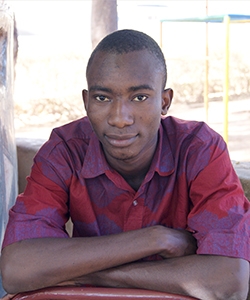
Marc Sepama ’17 of Burkina Faso. (Photo courtesy of Marc Sepama ’17)
Marc Sepama ’17
When asked about Ougadougou, the capital of the West African country Burkina Faso, Marc Sepama ’17 speaks fondly of his hometown.
“There are only a few neighborhoods that are well developed, but I take pride in that place because that’s what makes me who I am,” he says. “The people are very welcoming and friendly.”
Sepama is eager to plant his roots in Hanover, as well. He is looking forward to learning from the diverse perspectives of community members.
“I’m excited to work with classmates who come from different regions of the world,” he says.
“I hope the four years I’ll spend on campus will enable me to greatly benefit from the Dartmouth community, but I hope to also contribute to make it a better place,” says Sepama, who hopes to major in engineering at Dartmouth.
He is grateful for the opportunity to learn from renowned faculty members.
“I feel blessed and I’m thankful,” says Sepama. “This will be an enriching lifelong experience for me.”
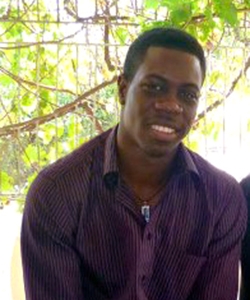
Theo Wilson ’17 of Jamaica. (Photo courtesy of Theo Wilson ’17)
Theo Wilson ’17
Theo Wilson ’17 was raised in a rural area of the St. Catherine Parish in southern Jamaica. His neighborhood is plagued by violence, deteriorated roads, and a scarcity of job opportunities.
Through studying as a King Scholar, Wilson hopes to go into education and renewable energy, in part to help Jamaica.
“We may be technologically handicapped, we may not have the facilities that foster community growth, but we have an abundance of minds,” says Wilson. “I’m certain I need to be here to help to nurture that potential. Education can start the chain reaction of progress.”
Wilson is looking forward to starting his Dartmouth education.
“Most of all, I’m looking forward to the people I’ll meet at Dartmouth,” says Wilson. “I’ll have these incredible classmates with a range of experience and insight. The possibilities of discovery through interaction with them seems endless”
